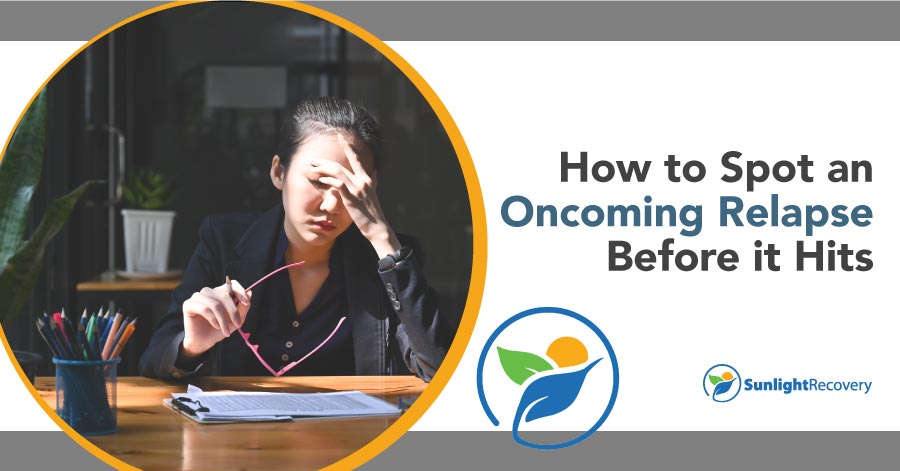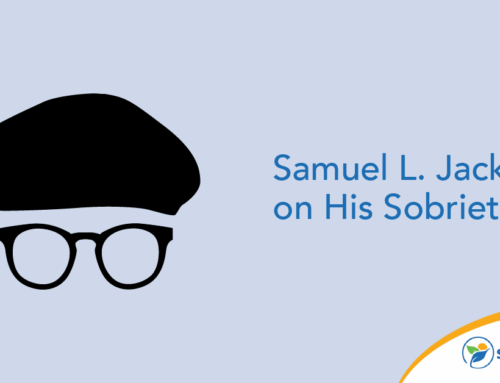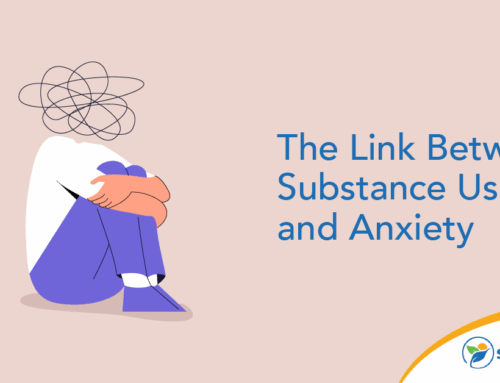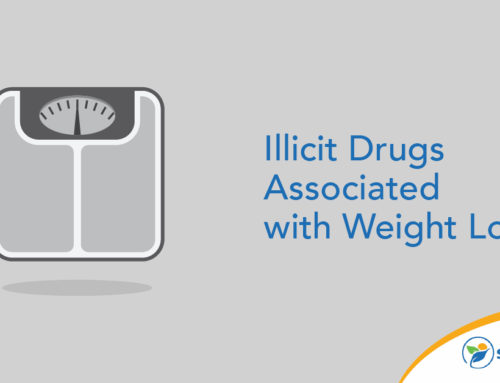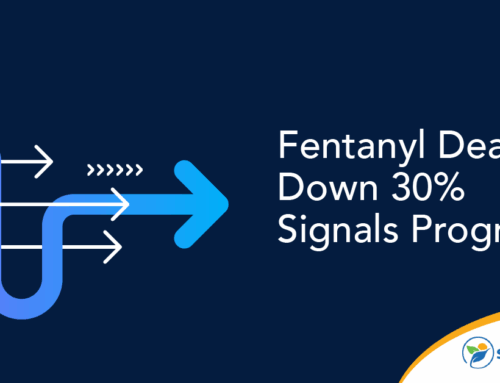Learn to recognize relapse warning signs and take action before it occurs. Professional support is a valuable resources in navigating a recovery setback.
A relapse of substance or alcohol use doesn’t come about suddenly without warning. There’s a process to get to the state of physical recovery setback, which starts in the subconscious and escalates. Look for warning signs and symptoms along the way to help halt a relapse or prepare for when one is imminent.
Regardless of how long you’ve been in recovery, returning to substance abuse is a common part of the process and should be expected. In fact, 40% to 60% of people recovering from a substance use disorder will experience a relapse. Learning to recognize the relapse warning signs can help you put the necessary support in place ahead of time. It’s also critical to understand the various types of recurrence events and what help is available to manage them.
Understanding the Three Types of Relapse
Most people think of a relapse as a return to using drugs or alcohol after a period of recovery. However, this defines one type of recurrence event (physical). Three unique types of relapse can also be seen as stages leading toward a full-blown physical relapse.
1. Emotional
Emotional relapse is the first stage of a process that can ultimately lead to a physical return to substance use later. At the emotional level, you’re not consciously considering returning to using drugs or alcohol. Instead, your behavior changes based on how you’re feeling. These unhealthy behavioral patterns can cause you to seek your substance of choice again in the future.
During the emotional relapse stage, you may feel isolated, experience mood swings, avoid social events or fail to express your thoughts and feelings to your loved ones. Cutting yourself off from these important connections potentially leads to a physical return to drugs or alcohol. People experiencing an emotional relapse may also not practice self-care, such as getting enough sleep, eating healthy foods or attending their Alcoholics Anonymous (AA) meetings.
2. Mental
Mental relapse results from the emotional stage. Not recognizing your behaviors as signs of emotional relapse may lead you to the mental recurrence phase. This is where you actively consider using drugs or alcohol again. If you’re in the mental relapse stage and are considering using drugs or alcohol, this is a critical time to contact a sponsor or visit a rehabilitation facility, such as Sunlight Recovery. These resources can ensure you get the support you need to stay sober.
3. Physical
The physical stage is commonly associated with the term “relapse.” This is when you actively return to using drugs or alcohol again. Between 5% and 45% of people with alcoholism may achieve some state of remission or improvement without professional support, according to a 2007 study. But there’s a better chance of long-term recovery with the help of a licensed therapist and rehabilitation program.
Spotting Relapse Warning Signs
Knowing the early warning signs of a relapse can be invaluable in ensuring you have support when it happens. Knowing the symptoms can also help you recognize the signs in someone you love, enabling you to offer your help and encouragement for them to seek treatment. Although this relapse warning signs list is not exhaustive, these are some common indicators you’re heading toward a return to substance use:
- Failure to attend AA or NA meetings
- Depression
- Increased stress levels
- Craving the substance
- Thinking about or planning to drink or use drugs
- A sense of having total control of your substance use (such as believing you can stop after just one drink)
- Isolating yourself socially or emotionally from loved ones
- Unusual or erratic behavior
If you notice any of these warning signs in yourself or someone you love, consider whether you have encountered a trigger or what potential triggers could be present that are prompting a relapse.
What Triggers a Relapse?
Someone may experience a relapse for many reasons, but some are preventable and depend on your environment. Awareness of your triggers can help you reduce your chances of recurrence by limiting your exposure or avoiding such situations altogether. For example, for some people, a negative connection or toxic relationship with another person can be a trigger. If that person was in your life while you engaged in substance abuse and reconnecting with them triggers an emotional, mental or physical relapse, it’s time to reevaluate whether the relationship is good for you.
Other potential triggers for a relapse can include:
- Stressful situations in your life
- Boredom
- Easily accessible alcohol or narcotics
- Lack of social support or feelings of isolation
Why It’s Critical to Have a Relapse Plan
Having a plan in place for when you recognize the signs of imminent relapse in yourself or someone you love is an important part of recovery. Engaging with substance use after a period of remission or staying in rehab is extremely common. Anticipating a relapse, whether emotional, mental or physical, will help you approach the situation from a place of confidence rather than fear.
Talk to your friends and family about the possibility of a relapse and encourage them to check in with you if you notice any of these behaviors. If you have a sponsor, be open with them about how you’re feeling and if you’re actively fantasizing about or planning to use drugs and alcohol again. Taking proactive measures to prevent returning to substance use when you notice the signs can keep you on track for lifelong recovery. Studies indicate that people who remain clean and sober for five years have just a 15% chance of relapsing after this initial period.
When to Get Professional Support
For many people, the most effective option for staying in recovery is seeking professional support at a facility like Sunlight Recovery. Call (888) 402-3647 today to speak with a compassionate counselor about your options, including residential treatment, outpatient care and medical detox programs. We offer a range of therapy and medication-assisted treatment options to meet your needs.


